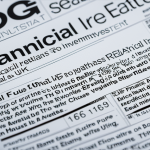Immediate Steps to Support Your Pet During Sudden Seasonal Changes
Sudden shifts in temperature and weather in the UK can challenge your pet’s wellbeing. The key to effective emergency pet care during such times is quick adaptation. Begin by closely monitoring your pet’s stress or discomfort—signs can include restlessness, panting, shivering, or reluctance to move. These may indicate your pet is struggling to adjust.
To support your pet immediately, adjust their environment to regulate temperature: provide warm blankets or cooling mats depending on the need. Keep essential supplies handy, such as extra food tailored for fluctuating energy demands, fresh water to combat dehydration, and first-aid items for any seasonal injuries. Having protective gear like waterproof coats or booties can help ease discomfort during wet or cold weather.
Also to discover : What Are the Most Common Challenges of Pet Ownership in the UK?
Remember, the goal of UK seasonal pet care is proactive management. By responding quickly to sudden weather changes and providing comfort and safety, you help maintain your pet’s wellbeing even in unpredictable conditions. Observing your pet closely and supplying appropriate care can reduce stress and promote resilience through each season.
Adjusting Nutrition and Hydration for Changing Weather
Proper pet nutrition UK shifts with the seasons to support your companion’s health as temperatures fluctuate. When colder weather hits, pets often need increased calories to maintain body warmth and energy levels. Conversely, during warmer months, lighter meals help prevent weight gain and overheating. Adjust your pet’s diet gradually to accommodate these seasonal energy demands.
Also read : Why Are Therapy Pets Becoming More Popular in the UK?
Hydration is equally critical. Pets may drink less as temperatures drop, risking dehydration despite cooler conditions. Encouraging water intake through fresh, accessible bowls or moist foods can prevent this. In hot weather, constant access to clean water is essential to avoid heat exhaustion. Monitoring your pet’s hydration status is a key part of emergency pet care during sudden weather shifts.
For pets with allergies or sensitivities, seasonal diets may need tweaking. For example, avoiding certain allergens that peak during specific UK seasons supports better pet wellbeing. Consulting with a vet can guide appropriate dietary changes to reduce allergic reactions or digestive upset.
By tailoring feeding routines and focusing on hydration, you help your pet remain healthy and comfortable year-round. Adequate nutrition and fluid intake form the cornerstone of effective UK seasonal pet care, ensuring your pet adapts smoothly to environmental changes.
Safe and Effective Exercise Routines Year-Round
Maintaining consistent pet exercise UK routines is crucial for your pet’s wellbeing but requires flexibility with seasonal changes. During colder, wetter months, outdoor exercise needs adapting to avoid hazards like icy pavements, wet grass, or mud that can harm your pet’s paws and coat. Protective booties and waterproof coats safeguard against environmental exposure, reducing discomfort and preventing infections.
In warmer weather, exercise timing shifts to cooler parts of the day—early morning or late evening—to protect pets from heatstroke or paw pad burns on hot surfaces. Exercising indoors becomes valuable when outdoor activity is unsafe, keeping pets mentally and physically stimulated. Puzzle toys, indoor fetch, or stair climbing simulate physical exertion, helping manage energy levels even during UK’s unpredictable weather.
Safe pet activities should always reflect your pet’s breed, age, and health status, crucial factors in pet exercise UK planning. Shorter, more frequent walks may be preferable for sensitive pets during extreme weather. Monitoring for signs of fatigue or overheating aligns with best practices in emergency pet care, preventing strain or injury.
Balancing outdoor and indoor exercise options ensures your pet stays active, comfortable, and healthy throughout the year, supporting overall pet wellbeing amid the UK’s seasonal fluctuations.
Managing Health Risks Unique to UK Seasons
Seasonal changes in the UK significantly impact pet health UK, requiring vigilant care to prevent common risks like allergies, parasites, and seasonal illnesses. Recognising and preventing allergies is crucial. Pets often develop symptoms such as itching, sneezing, or watery eyes in spring and autumn when pollen and mold spores peak. Early intervention with vet-approved treatments can alleviate these signs and support pet wellbeing.
Parasite protection strategies must adjust with the seasons. Fleas and ticks thrive in warmer months, while some parasites survive mild winters, making year-round prevention vital. Regular use of appropriate parasite control products tailored to the season significantly reduces the risk of infestations and related diseases.
Identifying symptoms of weather-related illnesses early aids effective emergency pet care. For example, dogs showing lethargy, vomiting, or shivering in winter may be at risk of hypothermia or frostbite. Conversely, heavy panting, drooling, or collapse during summer can indicate heatstroke. Understanding these signs helps owners act quickly to safeguard their pet’s health.
Integrating proactive parasite control, allergy management, and early illness detection into your UK seasonal pet care routine ensures your pet remains protected, comfortable, and healthy throughout the year.
Immediate Steps to Support Your Pet During Sudden Seasonal Changes
Sudden weather changes demand swift action to safeguard your pet’s wellbeing. Quick adaptation starts with observing signs of stress or discomfort—like restlessness, excessive panting, or shivering—which indicate your pet might be struggling with temperature shifts. Monitoring these reactions closely is a crucial element of effective emergency pet care.
Adjusting your pet’s environment is essential. For example, if temperatures drop suddenly, provide warm blankets and cozy bedding. Conversely, cooling mats and shaded areas help during unexpected heat spikes. These adjustments directly enhance UK seasonal pet care by creating comfort regardless of weather fluctuations.
Preparing essential supplies beforehand streamlines your response. Keep on hand extra food that supports energy needs during cooler weather, fresh water to prevent dehydration, and a basic first-aid kit for minor injuries. Protective gear—such as waterproof coats or booties—can prevent cold-related discomfort or infections, especially during wet conditions.
By combining diligent observation with environmental adjustments and having necessary supplies ready, you effectively reduce stress on your pet during seasonal shifts. This strategic approach embodies the best practices in emergency pet care and strengthens your pet’s resilience throughout the unpredictable UK seasons.
Immediate Steps to Support Your Pet During Sudden Seasonal Changes
Sudden shifts in weather demand rapid adjustment to preserve your pet’s wellbeing. Begin by closely monitoring signs of stress or discomfort such as restlessness, panting, or shivering, which often signal difficulty adapting to temperature swings. Identifying these signs early is vital for effective emergency pet care.
To support rapid adaptation, modify your pet’s environment immediately. In cold snaps, offer warm blankets and ensure sheltered resting areas. During unexpected heat, provide cool mats and shaded spots to prevent overheating. Maintaining a comfortable setting aligns with core principles of UK seasonal pet care.
Preparation is key. Keep essential supplies ready, including seasonal-appropriate food to meet changing energy demands, fresh water accessible at all times to maintain hydration, and a first aid kit for treating minor injuries. Protective items such as waterproof coats and booties shield pets from cold and damp conditions, reducing risk of illness.
By focusing on vigilant observation, swift environmental changes, and having necessary provisions on hand, you lay the groundwork for sound emergency pet care. This approach minimizes stress and ensures your pet adjusts smoothly to fluctuating UK weather, safeguarding pet wellbeing throughout unpredictable seasonal transitions.







